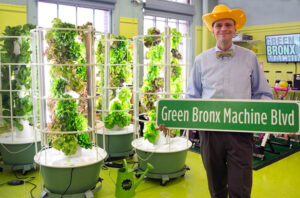Gardening, once considered a traditional pastime, has taken on a new role in American education. The integration of gardening into the American education system is a growing trend that offers students a hands-on, experiential approach to learning. This innovative educational tool not only fosters a love for nature but also provides valuable lessons in science, sustainability, and life skills. In this post, we will explore the benefits and the rising importance of gardening in American schools.
The Benefits of Integrating Gardening into Education
Integrating gardening into education offers a plethora of benefits, not only for students but for the education system as a whole. Here are some of the key advantages:
- Hands-On Learning: Gardening provides a tangible and experiential form of learning. Students can touch, smell, and interact with the natural world, which can be more engaging and memorable than traditional classroom instruction. This hands-on approach enhances their understanding of various concepts.
- Science Education: Gardening serves as a practical platform for teaching fundamental scientific principles. Students learn about plant biology, photosynthesis, soil composition, and the ecological relationships within an ecosystem. These lessons promote scientific literacy and an appreciation for the natural world.
- Nutrition and Healthy Eating Habits: Gardening introduces students to the concept of growing their own food. They gain a deeper understanding of where their food comes from and learn about the nutritional value of fresh produce. This knowledge encourages healthier eating habits and a greater appreciation for locally grown, seasonal foods.
- Environmental Stewardship: Gardening instills a sense of responsibility for the environment. Students learn about sustainable gardening practices, including composting, water conservation, and reducing waste. This awareness encourages eco-friendly behaviors and a commitment to preserving the planet.
- Teamwork and Responsibility: Many gardening projects involve teamwork. Students work together to plan, plant, tend, and harvest the garden. This collaborative effort teaches them important life skills such as communication, cooperation, and problem-solving. Students also take on responsibilities, which fosters a sense of ownership and accountability.
- Life Skills: Gardening imparts valuable life skills that extend beyond the garden. These include patience (as they wait for plants to grow), perseverance (in tending to the garden), and the ability to follow instructions. These skills are transferable to various aspects of life, including academics, personal relationships, and future careers.
- Connection to Nature: Gardening provides students with a direct connection to the natural world. It allows them to observe the changing seasons, understand the life cycles of plants, and witness the interdependence of living organisms. This connection fosters a deeper appreciation for nature and a sense of wonder.
- Cognitive and Emotional Benefits: Gardening has been shown to have cognitive benefits, such as improved attention and problem-solving skills. It also offers emotional benefits, such as reduced stress and increased feelings of well-being. Gardening can be a therapeutic outlet for students facing academic or personal challenges.
- Interdisciplinary Learning: Gardening projects can be integrated into various subject areas, including science, math, literature, and art. This interdisciplinary approach reinforces the relevance of gardening to a wide range of academic disciplines.
- Community Building: Gardening often involves collaboration with parents, local communities, and volunteers. This fosters a sense of community and mutual support. Students learn that they are part of a larger network and can make positive contributions to their community.

The Growing Trend
- School Gardens: Many American schools have embraced the idea of creating on-campus gardens. These gardens serve as outdoor classrooms where students actively participate in planting, tending, and harvesting crops.
- Curricular Integration: Gardening is not limited to extracurricular activities. It is increasingly integrated into the curriculum. Teachers use gardens to teach science, math, and even literature, making it a part of everyday education.
- Community Engagement: Gardening programs often extend to involve parents, local communities, and volunteers. This creates a collaborative learning environment that enhances the educational experience.
- Educational Initiatives: Various organizations and initiatives, such as “Farm to School” and “Green Schoolyards,” promote garden-based education and provide resources to support its implementation.
Success Stories
Edible Schoolyard Project
The Edible Schoolyard Project, founded by renowned chef and activist Alice Waters, is a pioneering initiative that has redefined food education in American schools. With a mission to promote a holistic approach to food, health, and education, this project has been instrumental in introducing gardening and cooking into schools across the nation. Let’s explore the significant impact and innovative approach of the Edible Schoolyard Project.
Founder Alice Waters: A Visionary Advocate for Food Education
Alice Waters, an acclaimed chef and the owner of the iconic Chez Panisse restaurant in Berkeley, California, is more than just a culinary genius. She is a passionate advocate for transforming the way we think about food and education. Waters’s vision was to reconnect students with the sources of their food, foster an appreciation for fresh, locally grown produce, and promote healthy eating habits.
Key Elements of the Edible Schoolyard Project
- Gardens as Classrooms: One of the core elements of the project is the creation of gardens on school grounds. These living, outdoor classrooms allow students to participate in the entire food production process, from planting and nurturing crops to harvesting and composting.
- Cafeteria Connection: The project emphasizes the importance of a direct link between the school garden and the cafeteria. Students get to see the fruits of their labor used in school meals, reinforcing the value of fresh, local ingredients.
- Cooking Education: In addition to gardening, the Edible Schoolyard Project introduces cooking as an essential skill. Students learn how to prepare simple, nutritious meals from the garden’s bounty, emphasizing the importance of culinary literacy.
- Curricular Integration: The project doesn’t exist in isolation but is seamlessly integrated into the school curriculum. Lessons in math, science, and language arts are enriched by the real-life experiences gained in the garden and kitchen.
- Community Involvement: The project fosters community engagement by involving parents, local chefs, and volunteers. It creates a sense of shared responsibility for food education and sustainable practices.
Success and Impact
The Edible Schoolyard Project has had a profound impact on education, nutrition, and community building:
- Healthier Eating Habits: Students who participate in the project tend to make healthier food choices and develop a greater appreciation for fresh, locally sourced foods.
- Academic Improvement: The hands-on, interdisciplinary nature of the project has been linked to improved academic performance and engagement.
- Sustainable Practices: The project instills values of sustainability and environmental stewardship in students, who learn about composting, water conservation, and reducing food waste.
- Community Building: The project strengthens school communities and encourages local partnerships, creating a network of support for food education.
- National and Global Influence: The success of the Edible Schoolyard Project has inspired similar initiatives across the country and around the world, emphasizing the importance of food education.
Green Bronx Machine

The Green Bronx Machine, founded by visionary educator Stephen Ritz, is a groundbreaking initiative that has revitalized the South Bronx, one of the nation’s most challenged communities, by reimagining education, nutrition, and the future of its students. At the heart of this innovative program is the integration of indoor gardening, hydroponics, and agriculture into the educational curriculum, empowering students to grow their own food while acquiring valuable life skills and knowledge. Let’s delve into the inspiring story and impact of the Green Bronx Machine.
Stephen Ritz: A Transformational Educator
At the forefront of the Green Bronx Machine is Stephen Ritz, an educator with a unique vision for the future of his community. Ritz’s innovative approach to education combines gardening, nutrition, and sustainability to tackle the challenges facing South Bronx students. His unwavering dedication has earned him numerous awards and recognition as a pioneer in urban education.
Key Elements of the Green Bronx Machine
- Indoor Gardening: Ritz recognized that limited access to green spaces in the South Bronx needed to be addressed. He introduced indoor gardening systems in schools, transforming classrooms into vibrant green oases where students cultivate a variety of crops.
- Hydroponics: To overcome the constraints of limited outdoor space, hydroponic systems were integrated into the curriculum. These soil-less growing methods allow students to grow vegetables and herbs indoors, year-round.
- Education and Empowerment: The Green Bronx Machine curriculum extends beyond gardening and nutrition. It empowers students with skills and knowledge in science, technology, engineering, arts, and mathematics (STEAM) while instilling values of environmental responsibility and entrepreneurship.
- Nutrition and Food Access: By growing their own fresh produce, students gain a deeper understanding of nutrition and the importance of healthy eating. The program actively addresses food insecurity in the South Bronx by providing access to fresh, locally grown food.
- Community Engagement: The Green Bronx Machine fosters community involvement by connecting students, parents, and local residents through gardening and events. It promotes a sense of shared responsibility for improving the community’s well-being.
Impact and Success
The Green Bronx Machine has achieved remarkable results:
- Academic Achievement: The program has significantly improved students’ academic performance and engagement. It demonstrates that hands-on, experiential learning enhances learning outcomes.
- Nutrition Education: Students who participate in the Green Bronx Machine develop healthier eating habits and a greater appreciation for fresh, nutritious foods.
- Community Transformation: The initiative has played a pivotal role in revitalizing the South Bronx, turning barren spaces into thriving community gardens and learning hubs.
- National and Global Recognition: The success of the Green Bronx Machine has garnered attention worldwide, serving as a model for urban education and community development.
In the South Bronx, the Green Bronx Machine is more than a gardening program; it’s a catalyst for positive change, nurturing young minds and reshaping communities. By empowering students with the knowledge and skills needed to grow their own food, Stephen Ritz’s visionary approach is sowing the seeds of a healthier, more sustainable future in one of America’s most underserved areas.
Life Lab
Located in the heart of California, Life Lab is an organization dedicated to transforming education through garden-based learning. For over four decades, Life Lab has been at the forefront of the garden-based education movement, providing an array of programs and resources that empower schools to integrate gardens into their curricula. This innovative approach not only enriches academic learning but also instills a deep connection to nature and fosters healthy lifestyles. Let’s explore the impact and offerings of Life Lab.
History and Mission
Life Lab was founded in 1979 with the vision of creating opportunities for children to learn about life through hands-on experiences in gardens. Their mission is to cultivate children’s love of learning, healthy food, and nature.
Key Offerings of Life Lab
- Educational Programs: Life Lab offers a variety of garden-based educational programs for schools, educators, and students. These programs are designed to align with academic standards and enrich curricula across subjects.
- Professional Development: Life Lab provides educators with training and resources to effectively use gardens as outdoor classrooms. They offer workshops, webinars, and resources to help teachers integrate garden-based learning into their teaching practices.
- Curriculum Resources: Life Lab has developed a range of curriculum materials and activity guides that are aligned with academic standards. These resources assist educators in using the garden as a teaching tool.
- Garden Classroom: The organization runs a “Garden Classroom” on their California campus, serving as a model for what a garden-based learning environment can look like. Educators and students can visit this living laboratory to gain inspiration and ideas for their own gardens.
- Community Building: Life Lab facilitates connections among educators and schools that are interested in garden-based learning. They foster a community of like-minded individuals who are passionate about bringing outdoor education to their students.
Impact and Success
The work of Life Lab has made a significant impact in several key areas:
- Academic Achievement: Garden-based education has been linked to improved academic performance and student engagement. Life Lab’s programs help bridge classroom learning with hands-on experiences in the garden.
- Healthy Eating Habits: Students who participate in garden-based education tend to make healthier food choices and have a better understanding of the nutritional value of fresh produce.
- Environmental Stewardship: Life Lab’s initiatives instill values of sustainability and environmental responsibility. Students learn about composting, water conservation, and reducing food waste.
- Community Engagement: Life Lab’s programs encourage parents, local communities, and volunteers to become involved in garden-based education, creating a network of support for schools.
- National Influence: The success and expertise of Life Lab have influenced garden-based education initiatives across the country.
Life Lab’s pioneering work in garden-based education is sowing the seeds of a healthier, more connected, and environmentally aware generation. By promoting the use of gardens as dynamic classrooms, they are transforming education and cultivating young minds with a love for learning, nature, and healthy living.
Bottom Line
The integration of gardening into the American education system represents a transformative shift in how students learn. It not only imparts knowledge but also instills values that can positively influence the choices and actions of future generations. Gardening fosters an appreciation for the environment, encourages healthy habits, and equips students with life skills that extend far beyond the classroom. As this trend continues to grow, it offers a promising path toward a more sustainable and informed society.


